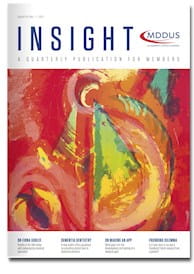THE more advances are made in medical tests, treatments and other interventions, the greater the pressure can be for clinicians to use them. Faced with a patient seeking relief from pain, suffering or anxiety, the question often follows: "Surely something can be done?" But the fact that something can be done is no guarantee of a positive outcome and in some cases the intervention may do more harm than good.
The Academy of Medical Royal Colleges (AoMRC) recently launched their Choosing Wisely campaign, part of a global movement to reduce "over-medicalization". At its heart is a call to both doctors and patients "to have a fully informed conversation about the risks and benefits of treatments and procedures".
They highlighted a 2015 study in which 82 per cent of doctors said they had prescribed or carried out a treatment which they knew to be unnecessary. The vast majority cited patient pressure or patient expectation as the main reason.
As a first step, Choosing Wisely listed 40 treatments and procedures said to be of little or no benefit to patients. In terminal cancer cases, for example, they say: "chemotherapy may be used to relieve symptoms but can also be painful, cannot cure the disease and may well bring further distress in the final months of life".
Patients are also urged to ask five key questions when seeking treatment:
- Do I really need this test, treatment or procedure?
- What are the risks or downsides?
- What are the possible side effects?
- Are there simpler, safer options?
- What will happen if I do nothing?
A 2015 BMJ article, 'Choosing Wisely in the UK: the AoMRC’s initiative to reduce the harms of too much medicine', describes how under the campaign: "[D]octors and patients will be supported to acknowledge that a minor potential benefit may not outweigh potential harm, the minimal evidence base, and substantial financial expense and therefore that, sometimes, doing nothing might be the favourable option".
Academy Chair Professor Dame Sue Bailey says that improved patient outcomes rather than financial savings are the main motivation behind the campaign. "What’s important is that both doctors and patients really question whether the particular treatment is necessary," she says. "Medicine or surgical interventions don’t need to be the only solution offered by a doctor and more certainly doesn’t always mean better."
So how will this translate into day-to-day clinical practice? The secret to success for Choosing Wisely appears to lie in wider adoption of shared decision-making (SDM) in order to help manage patient expectations, coupled with a shift away from a so-called "more is better" culture.
NHS England describes SDM as "a process in which patients… can review all the treatment options available to them and participate actively with their healthcare professional in making that decision".
Writing for the Guardian’s Healthcare Network, GP Dr Steven Laitner says SDM can lead to a better patient experience. "[It] can reduce treatment disagreements, lead to more realistic expectations, reduce clinically unwarranted treatments, and potentially reduce litigation. Importantly, patients are more likely to stick with a course of action or treatment when they have chosen it, rather than had it foisted upon them."
What’s more, the Royal College of Surgeons (RCS) argue that, following the landmark 2015 Supreme Court judgement in Montgomery v Lanarkshire Health Board, there is now a legal imperative for doctors to adopt SDM in order to secure informed consent. An article in the January 2017 edition of their Bulletin magazine states the ruling "has confirmed that a patient’s right to self-determination in treatment decisions triumphs over medical paternalism", and that "the principles of shared decision-making must become the norm".
There are concerns this approach may be unrealistic due to time pressures, but the RCS say "it need not be so". They point to the range of available tools to support decision-making that "enable the doctor and patient to share information in an efficient and comprehensive way".
In the feedback report for Realistic Medicine, the 2016 annual report from Scotland’s chief medical officer Dr Catherine Calderwood, there are also calls for a change to a culture "that permits doctors not to over treat – for example, treating an elderly patient in community and not hospital".
Looking to the future of healthcare, the key message seems to be less is more: less medicine and more patient involvement.
Joanne Curran is an associate editor at MDDUS
This page was correct at the time of publication. Any guidance is intended as general guidance for members only. If you are a member and need specific advice relating to your own circumstances, please contact one of our advisers.
Read more from this issue of Insight

Save this article
Save this article to a list of favourite articles which members can access in their account.
Save to library
